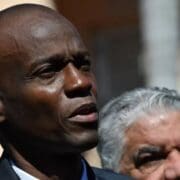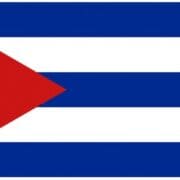Black Immigrant Daily News
The Food and Agriculture Organization of the United Nations (FAO) in collaboration with the Ministry of Agriculture, Land and Fisheries in Trinidad and Tobago, the University of the West Indies (UWI), St. Augustine Campus, and Fera Science Ltd. held its first mission in Trinidad and Tobago from 30 January to 3 February 2023, and achieved a major milestone. The purpose of the mission was to initiate preparations to establish an insect bioreactor pilot plant facility at the UWI Field Station. It was the first major step of the FAO led insect production project which is being implemented in Trinidad and Tobago, Barbados, Grenada, and Jamaica.
On 2 February 2023 a virtual meeting was held with stakeholders which was attended by 84 people from across the Caribbean, and focused on raising awareness of the production and use of the Black Soldier Fly (BSF), as an alternative source of high-quality protein for poultry and aquaculture feed. The Black Soldier Fly has been researched extensively for animal feed globally and has shown to be easily reared in the tropics. It is also extremely suitable for animal feed as it contains high concentrations of the most important proteins and amino acids needed by livestock or farm animals.
During the initial phase of the project, the Insect Bioreactor Pilot Plant will be used for demonstration and training on the establishment of small-scale BSF production and primary processing units, along with the production of the BSF for Barbados, Grenada, and Jamaica. It will also be used for additional testing and field trials.
Insect production, a growing global industry, has the potential to substitute 25 percent to 100 percent of the popular protein inputs for animal feed in the Caribbean, specifically in the poultry, pig, and aquaculture sectors; which could significantly reduce the regional import bill for animal feed. Apart from establishing pilots of this novel animal feed production system in each of the project countries, the project will develop business cases to facilitate entrepreneurs’ access to finance, train farmers and extension staff on the use of “frass” – a by-product of insect rearing which is an organic fertilizer and, establish a knowledge hub on insect rearing at UWI to ensure the long-lasting impact of the project.
Dr Renata Clarke, Sub-regional Coordinator, Food and Agriculture Organization of the United Nations (FAO), who spoke avidly about the project indicated that, “We cannot transform agriculture if the cost of critical inputs like animal feed and fertilizer remains incredibly high and largely imported. How can we begin to address the cost of a healthy diet if we do not seriously explore technologies that can improve production efficiency? We cannot expect youth to take agriculture seriously as a profession unless we facilitate modern solutions that are demonstrably economical and open the door for fulfilling careers in agriculture. We should move with greater urgency so as to avoid delays in investing in the circular economy – as the issues of the environment are way too pressing, particularly for us. This project responds to all these necessities and more. I expect this project to be transformative and impactful”.
Damian Malins, Venturing Projects Director, Mission Lead for Fera Science Ltd. and project partner stated, “Population growth, climate change and the dual challenges of ensuring food security and food safety, are impacting all areas of the agri-food chains across the Caribbean and worldwide. At Fera, we recognize that insect protein has enormous potential to respond to these challenges as a high quality, safe and sustainably sourced ingredient of animal feed which can displace soy and fishmeal when blended into animal diets. As a specialist and world leading expert scientific services laboratory, with over 100 years heritage of “protecting you, what you eat and the world in which we live”, we are bringing our expertise in insect farming, food safety and novel protein production to the Caribbean”.
Another key partner in the project is the University of the West Indies, St. Augustine Campus, Dr Ronald Roopnarine, researcher and lecturer at the Faculty of Food and Agriculture (FFA), UWI has been leading the organization and logistics for the project activities overseen by the UWI. He emphasized, “Food security has been a long-standing concern in the region, the emergence of the COVID-19 virus and recent global conflicts have amplified these concerns and propelled Caribbean SIDS to reconsider the structure of their agriculture sectors towards more self-sufficiency and innovation”.
Meanwhile, Roshni Ramsingh, Project Focal Point, Ministry of Agriculture, Land and Fisheries, indicated, “Agriculture has to constantly evolve, just like the very first farmers who scattered grass seeds around their settlements instead of wandering in search of edible grasses, we too must continually re-tool ourselves. Adopting insects as a brand-new item in our tool kit as we search for new and innovative ways to feed our population will provide value beyond their substitution costs in the feed rations. The synergism of removing wastes by feeding them to insects that are then fed to livestock which form part of our food web will redound through the entire sector adding value and opening avenues we can barely glimpse”.
As the Caribbean Community (CARICOM) Member States work diligently to reduce the region’s large food import bill, by 25 percent by 2025, special attention has been given to efforts to increase production of selected commodities including livestock to meet growing protein needs and substitute for imported products. Livestock feed often comprises up to 70 percentage of the production costs and continues to be a binding constraint for the expansion and sustainability of the livestock sector given that between 40 and 50 million USD in compound animal feed is being imported yearly. Insect production is therefore not only a feasible solution, but also provides tremendous opportunities for livelihoods, including among women, youth, and vulnerable groups.
Donate At Caribbean News Service, we do not charge for our content and we want to keep it that way. We are seeking support from individuals and organisations so we can continue our work & develop CNS further.
NewsAmericasNow.com










